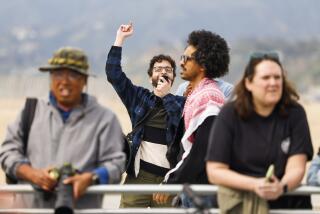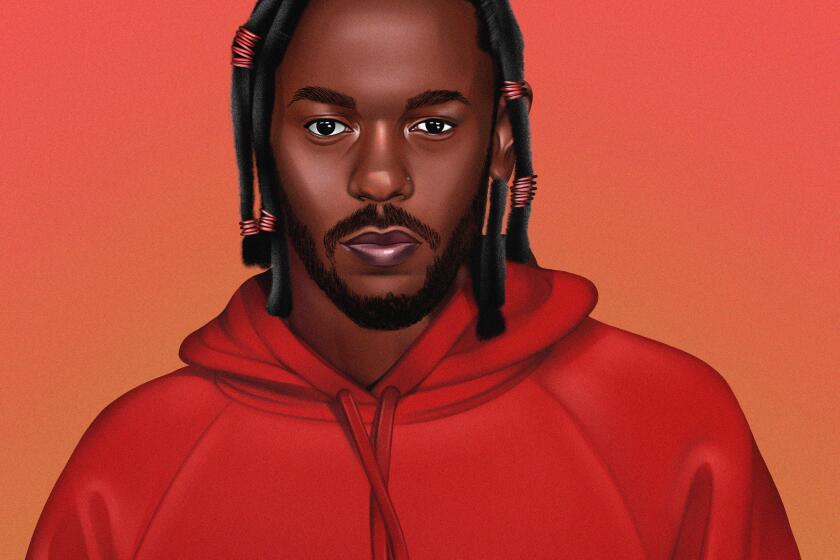‘Mudbound’ cinematographer Rachel Morrison made Oscar history but knows the good fight isn’t over yet

‘Mudbound’ cinematographer Rachel Morrison made Oscar history but knows the good fight isn’t over yet
Rachel Morrison made history as the first woman to be nominated for a cinematography Oscar for her work on Dee Rees’ “Mudbound.” Unlike other nominees she didn’t find out about it while groggily watching the announcement in bed or getting a multitude of phone calls.
Instead, at 5:30 a.m. Morrison was at the airport for an early flight to Utah where she would be joining acting nominee Octavia Spencer as a member of the U.S. dramatic jury at the 2018 Sundance Film Festival.
“I had no idea when they were gonna make the announcement, so I was totally caught by surprise,” Morrison says. “And I had a sleeping 2 1/2-year-old on my shoulder. So I was silently freaking out dancing around and probably looked like a crazy person.”

Carey Mulligan, Jason Clarke, Jason Mitchell and Mary J. Blige star in the trailer for “Mudbound.”
WATCH: Video Q&A’s from this season’s hottest contenders »
An independent cinema veteran with notable Sundance releases such as “Dope,” “Fruitvale Station” and “Sound of My Voice” on her resume, Morrison admits that while she was honored by the Oscar nomination, earning recognition from the American Society of Cinematographers earlier this year actually meant more to her.
“Those are my peers and my heroes, and so, first of all, when that kicked in, holy crap, this is all kind of real,” Morrison says. “This whole experience has been a lifelong dream of mine, but when that happened? I even said if the Oscars didn’t come to pass, the ASC was the one that really was an incredible validation to me.”
When Morrison attended New York University as an undergraduate, there was only one other woman in her cinematography class, Emmy winner Reed Morano. And at the time there weren’t that many women to look up to in the industry, so she clearly understands the importance of the recognition she’s received this year.
“I remember it was Ellen Kuras, Nancy Schreiber, Lisa Rinzler and Tami Reiker was kind of a known name at the time,” Morrison says. “For 15 years, there were no new names. That was really kind of incomprehensible. When people ask me why there are so few female DPs it makes no sense to me. Everything about what we do actually speaks to women’s strengths like empathy and visualizing emotion.”
Everything about what we do actually speaks to women’s strengths like empathy and visualizing emotion.
— Rachel Morrison
Comparing the number of women in still photography, which she believes is closer to a 50/50 gender split, Morrison believes the door should be open for more women to excel at the art of cinematography. And for those who are told it’s too hard to break down industry archetypes she has some advice: Don’t listen to them.
“In terms of hearing people saying it’s a boys’ club, you almost have to tune that out. I think if you start to internalize any of that or believe any of that, then you’re sort of setting up your own stumbling blocks and your own hurdles,” Morrison says. “If anything, I think Reed and I, we always looked at it as an advantage and not a deficit. We get to stand out in a room. We’re memorable. You have to keep reminding yourself of all the positive things.”
That being said, there have been justifiable frustrations. Just as female filmmakers have seen their male counterparts get more opportunities at a studio level, the same can be said for Morrison and other female DPs. She notes, “I’ll never know what happens behind closed doors, but it took me 12 indies, eight of which were at Sundance, and all of these things to get a studio film and I watched my male counterparts have one successful film at Sundance and start shooting $30-million movies.”
After successful collaborations with Ryan Coogler and Rick Famuyiwa, Morrison came to the attention of Rees who was putting her crew together for “Mudbound,” a period drama that would eventually be shot in the steamy South.
“She saw something in my work that she thought was right for this moment, and for me I was impressed with her ability to take that short, ‘Pariah,’ and make a feature of it,” Morrison says. “And a script that I thought was incredibly moving and incredibly relevant. All about gender and racial inequality, which is exactly what we’re going through now.”
At the moment Morrison isn’t just celebrating her Oscar nomination but also the critical raves she’s earning for her work with “Fruitvale’s” Ryan Coogler on Marvel Studios’ soon-to-open “Black Panther.” She knows that “Mudbound” set a pretty high bar for her as an opportunity to shoot a film with a message in a period setting. She’d love to do another period film or sci-fi, “something that gets the creative juices flowing but is also a good story.”
“I think it’s gonna be hard to go back to daytime contemporary interiors after that,” Morrison says with a smile. “The script would have to be absolutely amazing to make me wanna go shoot in a New York apartment [again].”
More to Read
From the Oscars to the Emmys.
Get the Envelope newsletter for exclusive awards season coverage, behind-the-scenes stories from the Envelope podcast and columnist Glenn Whipp’s must-read analysis.
You may occasionally receive promotional content from the Los Angeles Times.








